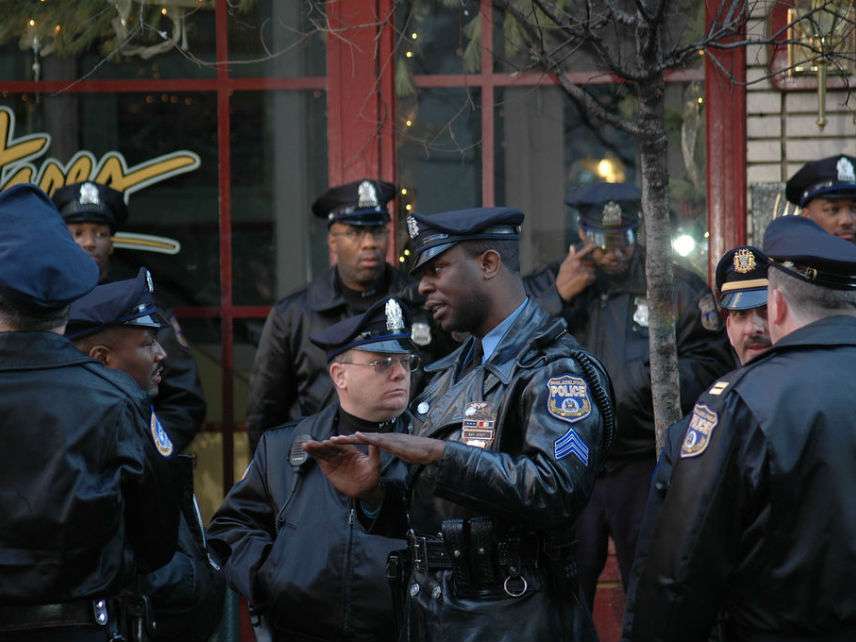Bad Cops Will Keep Getting Rehired As Long As You Have Powerful Police Unions
There's a simple way to break the cycle, but it's not easy.

A depressingly familiar story in The Washington Post describes how a Philadelphia police officer, Cyrus Mann, was fired after shooting three people within three years, in one case killing an unarmed man by shooting him in the back. He then got his job back, thanks to a union contract that offers a bevy of employment protections, including an arbitration process that effectively reduces the decision to fire an officer to a request.
Since 2008, the Philadelphia Police Department has fired more than 150 cops, of whom at least 88 had been arrested and at least 48 were eventually convicted on charges like murder, rape, and extortion. Seventy-one of those officers tried to get their jobs back, and of those 71, at least 44 were successful.
In reviewing 37 of the nation's largest police departments, including Philadelphia, the Post found that since 2006 at least 451 of about 1,800 fired officers got their jobs back, thanks to provisions in their union contracts. Campaign Zero, an effort of a group of Black Lives Matter activists, tracks union contracts and their content; it finds that such arrangements are guaranteed in some way in virtually each contract they reviewed. That ubiquity makes many efforts at reducing police violence futile. Cities must have the ability to fire cops who are unable to do their jobs without resorting to excessive force.
Mann had been fired after shooting and killing Hassan Pratt in 2012, when Prat ran away from a traffic stop. Ralph Colflesh, the arbitrator who heard the case, told the Post his decision was made in part because "no one could prove that Mann shot him maliciously." Mann had, in fact, fatally shot Pratt, and so was the only witness to the shooting.
The burden of proof required for the government to deprive someone of their liberty should not be the same burden of proof required for the government to fire its own employees. The idea is preposterous but widespread, thanks in large part to the efforts of police unions. Public employee unions produce rules that protect bad actors, by design.
Public employees have a right to associate and assemble, of course. But public unions have the power they enjoy today only because of expansive privileges granted to them by government. Labor unions in the private sector must be careful not to make demands that would make their employers fiscally unsustainable. With public-sector unions, by contrast, the government will always be there for a bailout. And no matter how much a service declines in the public sector, the "customers" often have no other place to go. There is no competitive pressure for institutions like police to be responsive to consumer demands. Single-party rule in most major cities offers additional inoculatation from facing consequences for subpar performance.
Bad cops will keep getting rehired as long as public sector unions are among the most powerful forces in government, setting rules that protect public employees at the expense of the people they're supposed to serve.


Show Comments (32)